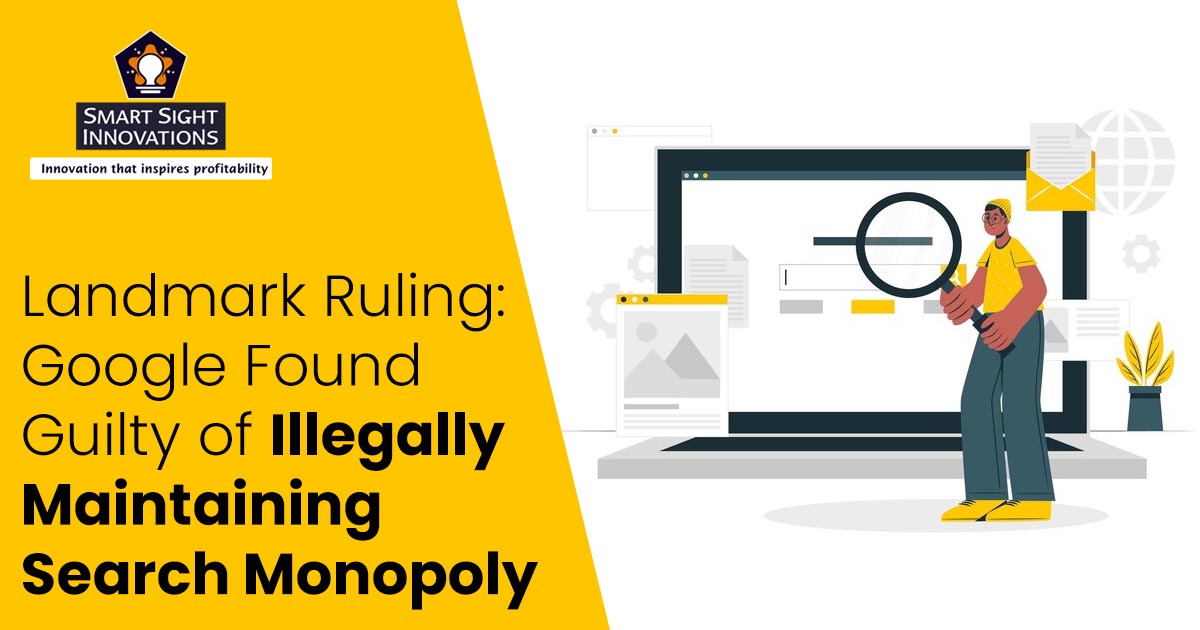Highlights
- On Aug. 5, 2024, a federal judge ruled that Google held an illegal monopoly on online search and advertising in a case brought by the U.S. Department of Justice (DOJ).
- According to the ruling, Google violated antitrust laws.
- The landmark decision is expected to have major implications for other Big Tech companies.
In a pivotal ruling, a U.S. federal judge determined that Google engaged in illegal practices to maintain its dominance in the online search market, marking a significant moment in the ongoing scrutiny of major technology corporations. The decision, delivered by Judge Amit P. Mehta of the U.S. District Court for the District of Columbia, represents a critical challenge to the influence of tech giants in today’s digital landscape.
In his extensive 277-page ruling, Judge Mehta found that Google had exploited its control over the search engine market. The ruling follows a case brought forward by the Department of Justice and several states, which accused Google of solidifying its monopoly by making substantial payments to companies like Apple and Samsung. These payments ensured that Google’s search engine remained the default option on smartphones and web browsers, giving the company an unfair advantage over competitors.
“Google has wielded its monopoly power to sustain its dominant position in the market,” Judge Mehta stated in his ruling.
The judgment signals a potential shift in how the power of large technology companies might be regulated in the future, particularly those with a substantial impact on how people access information, shop, and engage online. It also sets the stage for upcoming antitrust cases against other major players like Apple, Amazon, and Meta, the parent company of Facebook, Instagram, and WhatsApp. This ruling is being viewed by legal experts as one of the most consequential antitrust cases of the 21st century, likened to the landmark case against Microsoft in the late 1990s.
Rebecca Haw Allensworth, a professor specializing in antitrust law at Vanderbilt University, noted, “This case represents a watershed moment in the legal landscape surrounding Big Tech.”
The outcome is a significant setback for Google, whose search engine has become synonymous with online searches, to the extent that “Googling” is now a commonly used verb. The ruling could have far-reaching consequences for the company’s future, especially as it navigates the evolving landscape of artificial intelligence. Google is also facing another antitrust trial related to its advertising technology, scheduled to commence soon.
Although Judge Mehta’s ruling confirmed Google’s unlawful behavior, it did not specify the penalties the company would face. The next phase of the case will involve determining the appropriate remedies, which could include significant operational changes or even the divestiture of parts of Google’s business.
Key Findings from the Court
After thorough examination of the evidence and testimonies, the court unequivocally concluded that Google had maintained its monopoly through improper means.
The case, U.S. et al. v. Google, has been a long-fought battle, culminating in a 10-week trial last year. The Department of Justice initiated the lawsuit in 2020, highlighting Google’s overwhelming control of the search market, which it claimed generated substantial profits by capturing nearly 90% of web searches—a figure contested by Google. The company reportedly spends billions each year to remain the default search engine on widely-used browsers like Apple’s Safari and Mozilla’s Firefox, with Apple alone receiving approximately $18 billion in 2021 for this privilege, according to reports.
Jonathan Kanter, the Department of Justice’s chief antitrust officer, hailed the ruling as a critical step toward safeguarding competition and fostering innovation in the tech industry.
“This decision marks a turning point that ensures the protection of information access for all Americans,” Kanter stated.
However, Google’s President of Global Affairs, Kent Walker, expressed the company’s intent to challenge the decision through an appeal.
“The ruling acknowledges that Google provides the leading search engine, yet it suggests that making it easily accessible is problematic,” Walker said. “Our focus remains on delivering products that users find beneficial and easy to use.”
During the trial, Microsoft’s CEO, Satya Nadella, testified about the potential dangers of Google’s market dominance, warning that the company could leverage its current position to become a dominant force in the emerging field of artificial intelligence. He described the relationship between Google and Apple as “oligopolistic,” raising concerns about their combined influence over the tech market.
Sundar Pichai, CEO of Google, defended the company’s practices, arguing that Google’s success stems from the superior quality of its services, which attract users organically.
“Google’s dominance is a result of our commitment to providing the best possible service to our users,” said John Schmidtlein, Google’s lead attorney, during the trial’s closing arguments in May.
The government argued that Google’s strategy of paying for default status on devices effectively stifled competition by preventing rivals from gaining the necessary scale to compete. This allowed Google to collect more user data, further enhancing its search engine’s capabilities and reinforcing its market dominance.
Judge Mehta agreed with the government’s position, concluding that Google’s agreements to be the default search engine on various platforms significantly hindered competition, making it challenging for other companies to pose a serious threat to its market share.
For over a decade, these agreements provided Google with a level of scale that competitors could not rival, Judge Mehta explained in his ruling.
The ruling also addressed Google’s role in the online advertising market. The court found that Google’s monopolistic behavior enabled it to artificially inflate prices for search ads, thereby increasing its revenue. This revenue was then used to secure its search engine’s default status on various platforms.
“Google’s ability to impose higher prices for search ads, unchecked, has fueled its significant revenue growth and allowed it to sustain high, stable profits,” Judge Mehta noted.
While the court sided with the government on the majority of the claims, it did rule in favor of Google on a few minor points. One such claim, brought by state attorneys general, alleged that Google had unfairly excluded Microsoft’s search engine, Bing, from certain advertising tools. However, Judge Mehta dismissed this claim.
The implications of this ruling are expected to resonate throughout the tech industry, influencing ongoing and future antitrust cases against other tech behemoths. Legal analysts believe that this decision will bolster the government’s efforts to regulate the broader tech industry, which has come under increasing scrutiny for monopolistic practices.
William Kovacic, a former chair of the Federal Trade Commission, emphasized the broader significance of the ruling.
“This victory lends credibility to the government’s broader initiative to apply antitrust laws to large corporations,” Kovacic remarked.
Google has also faced antitrust challenges abroad, particularly in Europe, where regulators have accused the company of undermining competition in online advertising.
The legal battle against Google echoes the government’s earlier antitrust action against Microsoft. That case, which focused on Microsoft’s efforts to dominate the software market through aggressive business tactics, ultimately led to a settlement in 2001 after a lengthy legal process. Judge Mehta frequently referenced the Microsoft case during the Google trial, questioning how the legal precedents set by that case might apply to the current situation.
While the specifics differ, the overarching concern remains the same: ensuring that dominant companies do not use their market power to stifle competition and innovation.














